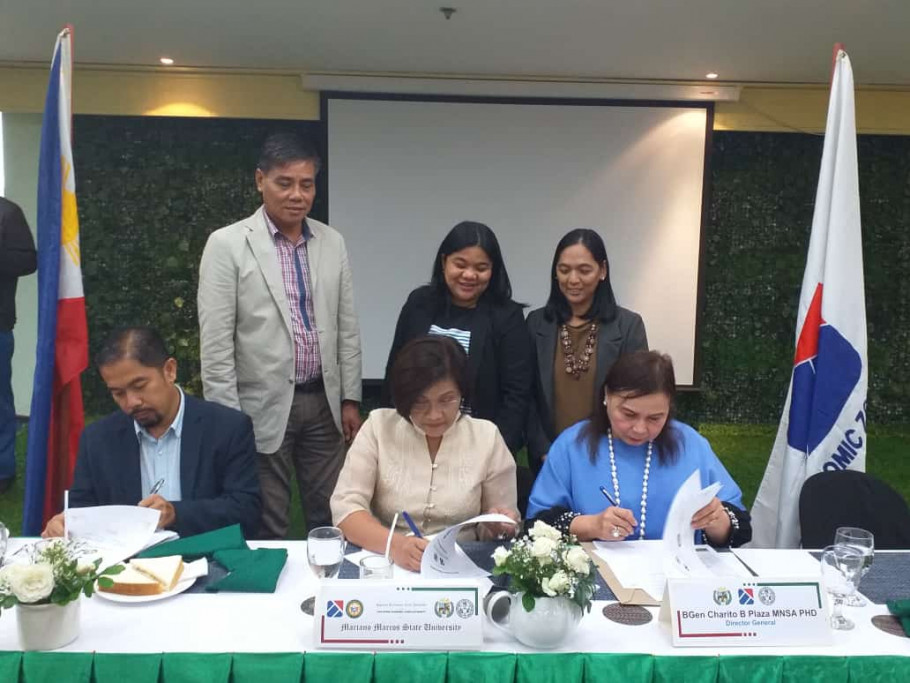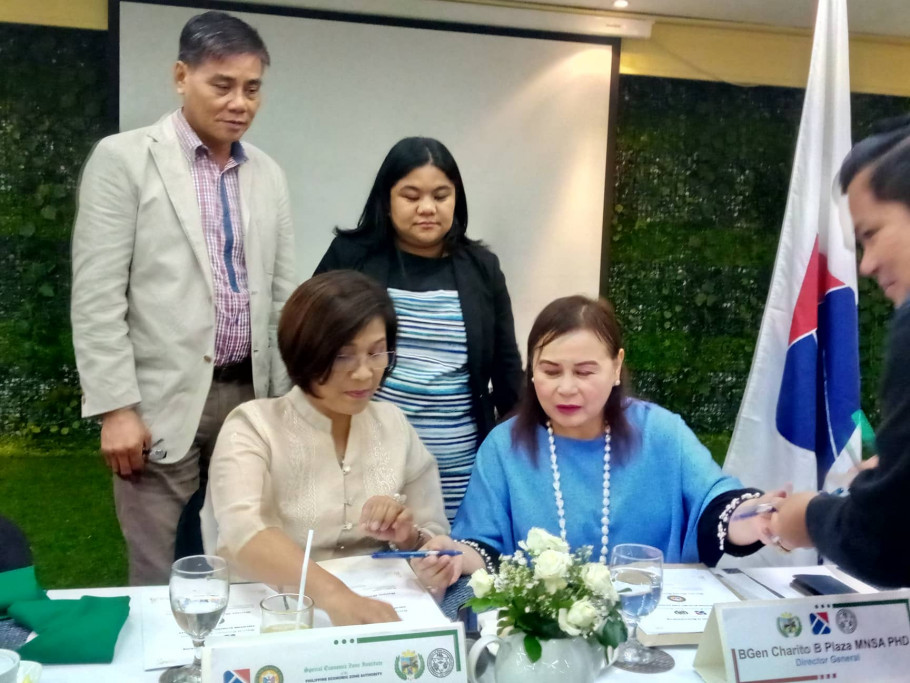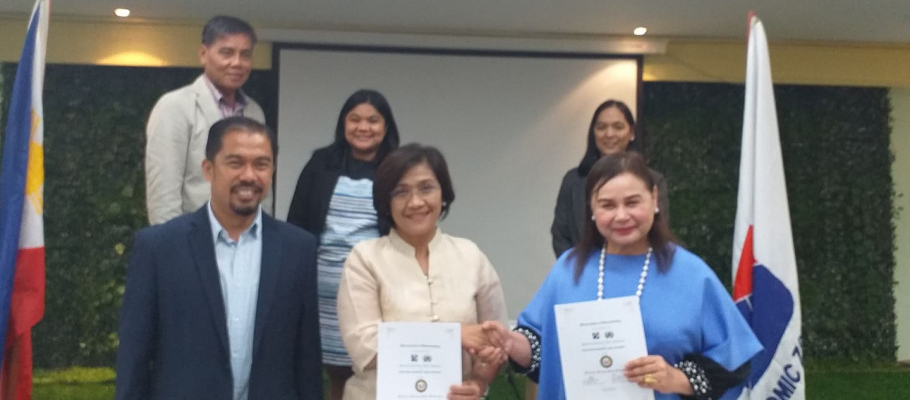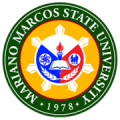
MMSU, PEZA sign deal to establish Ecozone in Region 1
MMSU and the Philippine Economic Zone Authority (PEZA) agreed to establish a Special Economic Zone (SEZ) Institute in Region I to promote export-oriented investments and increase productivity and income in the countryside.
A memorandum of understanding (MOU) was formally signed last September 25 at the Bonifacio Global City in Metro Manila between MMSU President Shirley C. Agrupis and PEZA Director General Charito B. Plaza. Aside from MMSU, there were other 34 state universities and colleges (SUCs) which joined the signing.
Creating SEZ Institute is one of the important programs under the stewardship of PEZA Director Plaza. The SEZ Institute aims to enhance partnership with Technical Education and Skills Development Authority (TESDA), Commission on Higher Education (CHED), Department of Science and Technology (DOST), LGUs, and industry associations to make Filipinos become multi-skilled, rich human capital, and become world-class workers.
It will also provide the professional, technical, and vocational trainings that match the manpower needs of foreign and domestic industries in order to attract more investors to the country; and promote export-oriented investments and increase productivity and income in the countryside.
These institutes will facilitate the training centers inside their campuses which will soon become Knowledge, Innovation, Science and Technology (KIST) parks type of SEZ created by PEZA.
Dr. Agrupis said MMSU is the only state university in the Ilocos region which shall serve as the program-delivering partner and office host of the SEZI that will be established in Batac City.
"MMSU was selected because it possesses operational facilities in research, instruction, and socio-cultural development service, making it the ideal and practical program-delivering partner of the SEZ institute," she claimed.
An ecozone is a selected area with highly developed or which has the potential to become a center of development in the agro-industrial, industrial, tourist/recreational, and commercial sectors, as well as banking, investment and financial centers. It may contain any or all of these.
"The SEZ Institute for Region I will help strengthen the measures of coordination, collaboration and cooperation among the government, the industry and the academe in preparing for local responses to global challenges in the competition for investment locations in the Asia Pacific region," Dr. Agrupis said.
The Institute will also serve as a government facility for and in capacitating industry-responsive research, industry-specific programs of instruction, industrialized campus production function, as well as advocacy-contextualized and arts-inspired socio-cultural services all geared towards a locally-positioned strategy in promoting export-oriented industries for the province and in the region.
After the MOU signing, the MMSU and PEZA planned to prepare and enter into a specific memorandum of agreement to secure and comply with the requirements in establishing the SEZ Institute in the future.
Once established, both agencies shall equip and mobilize SEZ Institute "as a think tank and crusader for green inclusive growth, green entrepreneurship and in advocating for robust creation of climate-resilient ecozones, as springboard to developing green industrial towns and ultimately a smart city in the region."
The university shall also support, cooperate and assist the PEZA as it coordinates and collaborates with fellow government agencies and relevant sectors in constituting a Regional Technical Working Group (RTWG) that shall study and recommend the approaches, methods and techniques in carrying out the goals and thrusts of the subject institute for the province and in the region.
Prior to this, the MMSU has already proposed three ecozone initiatives to the PEZA this year. These include the transformation of the MMSU College of Aquatic Science and Applied Technology (CASAT) in Currimao town as an aquamarine zone; the conversion of the university's forest reserve plantations in Brgy. Payao as an agroforestry zone; and the creation of KIST Park inside the university main campus.
Republic Act No. 7916 or the Special Ecozone Act of 1995 mandates the PEZA to provide employment opportunities for the Filipinos, increase their productivity and income, especially those in the rural areas through the establishment of SEZI of various types in suitable and strategic locations in the country, and through a measure that shall effectively attract legitimate and productive investments.
Gallery



Dear Valued Client,
We will be introducing our newly upgraded website on October 31, 2024 – offering faster access, improved navigation, and enriched content for students, faculty, partners, and stakeholders. Experience how we cultivate minds and transform futures at MMSU.

 CAFSD
CAFSD CASAT
CASAT CAS
CAS CBEA
CBEA CCIS
CCIS COE
COE CHS
CHS CIT
CIT CTE
CTE COM
COM CVM
CVM Graduate School
Graduate School




